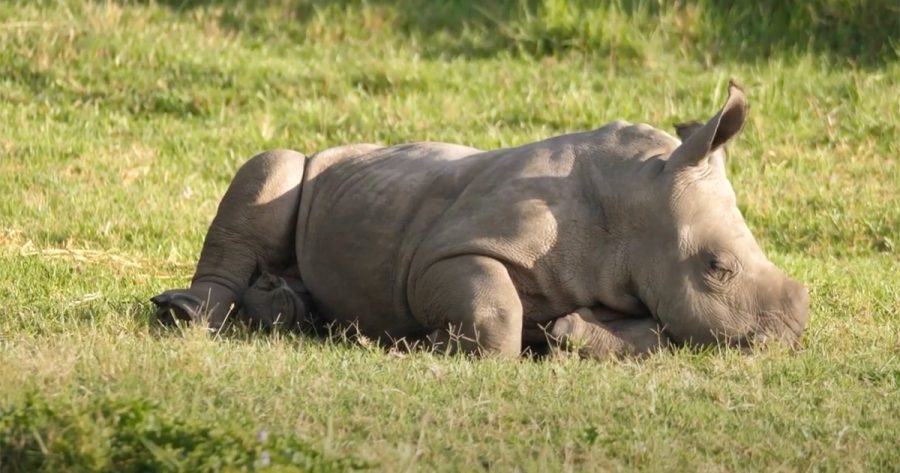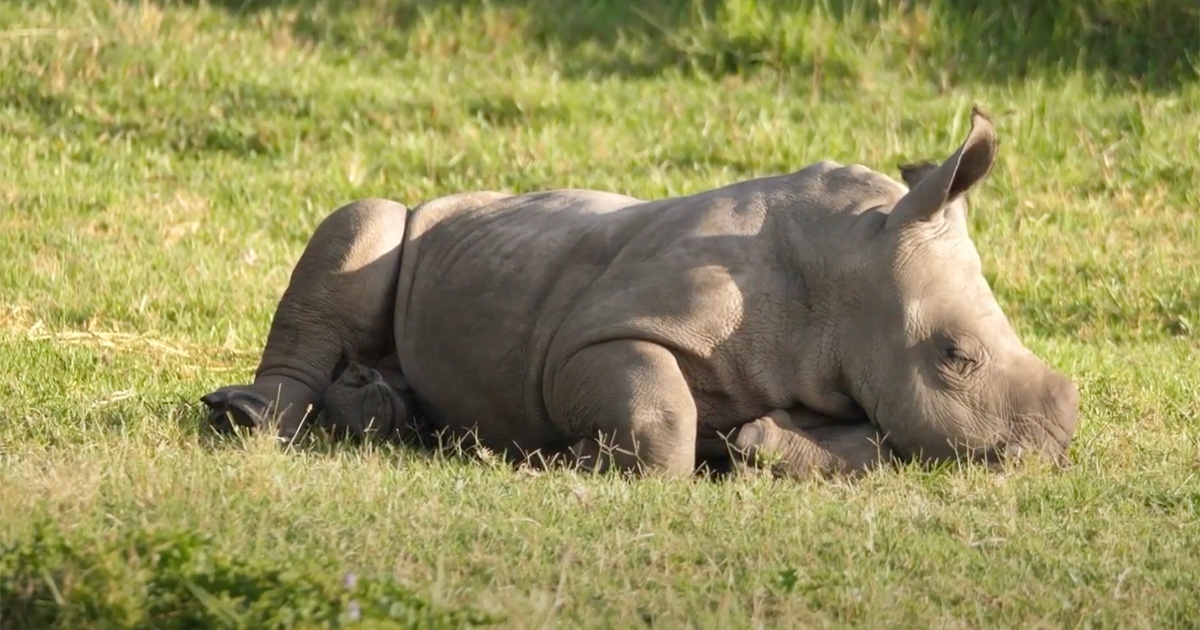
What does the future hold for 2,000 rhino in South Africa as auction approaches – WATCH
National Geographic has highlighted the plight of 2,000 white rhino which South African entrepreneur John Hume is reluctantly having to sell. An auction is set to start on 26 April, with an opening bid of $10-million. Watch the video below. Hume had unsuccessfully lobbied for a legal rhino horn trade which would have enabled him […]

National Geographic has highlighted the plight of 2,000 white rhino which South African entrepreneur John Hume is reluctantly having to sell. An auction is set to start on 26 April, with an opening bid of $10-million. Watch the video below.

Hume had unsuccessfully lobbied for a legal rhino horn trade which would have enabled him to fund the rhino on his private farm, and he hoped would’ve reduced the financial value of horns and therefore made rhino poaching less attractive.
It had been the 81-year-old’s intention to save the rhino – which are being poached to extinction for a market in China and other Asian countries – by breeding them privately. However, without funding, coupled with a devastating drought that increased the costs of feeding the rhino, and massive costs to protect the rhino from poachers, Hume’s “audacious” plan is no longer viable.
Hume has been conserving rhino for 30 years, and launched his 21,000 acre farm around 15 years ago with 200 rhino. He now has almost 2,000 rhino. Even the Kruger National Park, which has the largest number of rhino, only has double that figure, 4,000 (having lost 6,000 rhino, mainly to poaching, since 2010).

On 26 April, Hume’s entire farm – including the rhino, a handful of hippo, 11 giraffe, and hundreds of buffalo, goats and sheep will be put up for auction. The starting bid is $10-million, and the sale ends on International Save the Rhino Day, 1 May.
Hume’s horn collection will not be included.
Hume’s dream is that the buyer will continue the breeding project. Some experts say, as with lion farms, that they’re not convinced that breeding rhino in captivity helps preserve the species in the wild. Others propose that the rhino should be relocated to different locations, where there are buyers.
“Captive breeding isn’t a forever situation. It’s an intervention to help prevent a species from going extinct,” says Hume’s spokesperson and daughter-in-law Tammy Hume.
National Geographic notes that: “There are now only about 22,000 rhinos across Africa. Most are near-threatened southern white rhinos, like those at Hume’s farm, though there are also almost-extinct northern white rhinos, and about 6,000 black rhinos, which are slightly smaller animals whose three subspecies are critically endangered.”
Around 450 rhino were killed in SA last year.
African Parks told NG they will not be a bidder. As of yet, nobody has publicly confirmed they will be bidding. There have been concerns that a Chinese company could set up a similar operation in China. NG says: “Asked if the Humes would sell their rhinos to China, Tammy says Platinum’s current focus is selling off the entire farm in one block, and she wouldn’t comment on if they would refuse certain purchasers.”
SA’s Environment Department says it’s “committed to a meeting” with Hume, according to the National Geographic.
WATCH John Hume’s promo video for auction of rhino breeding farm in South Africa
Read the National Geographic story here. / Join the auction here.
